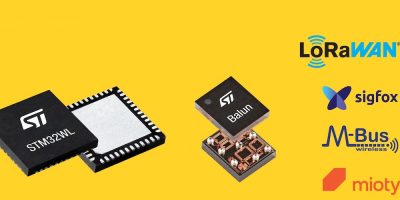At MWC 2023 next week (27 to 02 March 2023) in Barcelona, Rohde & Shwarz will showcase the possibilities of an AI-native air interface for 6G. Working with Nvidia, it will present the industry’s first hardware-in-the-loop demonstration of a neural receiver, showing the achievable performance gains when using trained machine learning (ML) models compared to traditional signal processing.
There will be a demonstration of how a neural receiver approach performs in a 5G NR uplink multi-user multiple input multiple output (MU-MIMO) scenario, which is a blueprint for a possible 6G physical layer. The setup combines test solutions for signal generation and analysis from Rohde & Schwarz and the Nvidia Sionna GPU-accelerated open-source library for link-level simulations.
A neural receiver constitutes the concept of replacing signal processing blocks for the physical layer of a wireless communications system with trained ML models. Academia, leading research institutes and industry experts across the globe anticipate that a future 6G standard will use AI/ML for signal processing tasks, such as channel estimation, channel equalisation, and demapping. Today’s simulations suggest that a neural receiver will increase link-quality and will impact throughput compared to the current high-performance deterministic software algorithms used in 5G NR.
To train machine learning models, data sets are an absolute prerequisite. Often, the required access to data sets is limited or simply not available. In the current state of early 6G research, test and measurement equipment provides a viable alternative when generating various data sets with different signal configurations to train ML models for signal processing tasks.
In the showcased AI/ML-based neural receiver setup, the R&S SMW200A vector signal generator emulates two individual users transmitting an 80MHz wide signal in the uplink direction with a MIMO 2×2 signal configuration. Each user is independently faded, and noise is applied to simulate realistic radio channel conditions. The R&S MSR4 multi-purpose satellite receiver acts as the receiver, capturing the signal transmitted at a carrier frequency of 3GHz by using its four phase-coherent receive channels. The data is then provided via the real-time streaming interface to a server. There, the signal is pre-processed using the R&S Server-Based Testing (SBT) framework including R&S VSE vector signal explorer (VSE) micro-services. The VSE signal analysis software synchronises the signal and performs fast Fourier transforms (FFT). This post-FFT data set serves as input for a neural receiver implemented using Sionna.
Nvidia’s Sionna is a GPU-accelerated open-source library for link-level simulation. It enables rapid prototyping of complex communications system architectures and provides native support to the integration of machine learning in 6G signal processing.
As part of the demonstration, the trained neural receiver is compared to the classical concept of a linear minimum mean squared error (LMMSE) receiver architecture, which applies traditional signal processing techniques based on deterministically developed software algorithms. These already high-performance algorithms are widely adopted in current 4G and 5G cellular networks.
Rohde & Schwarz will present the AI/ML based trained neural receiver demonstration at Fira Gran Via in Barcelona, Hall 5-5A80.







